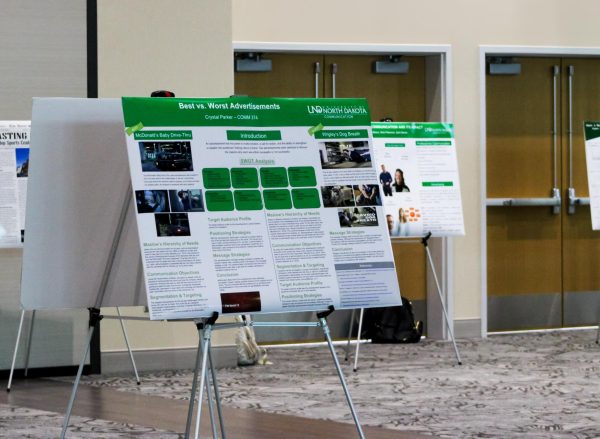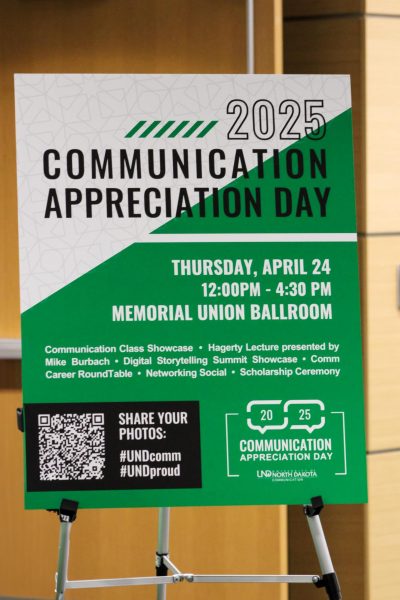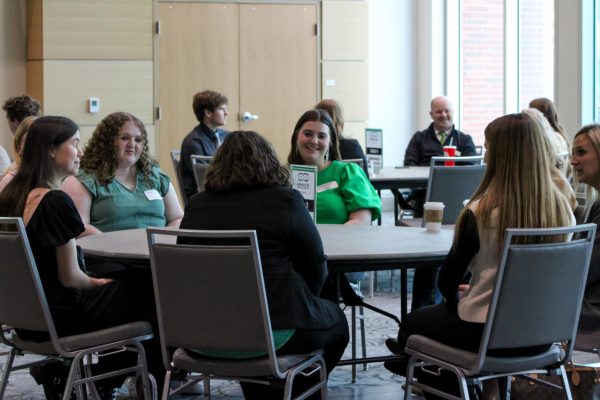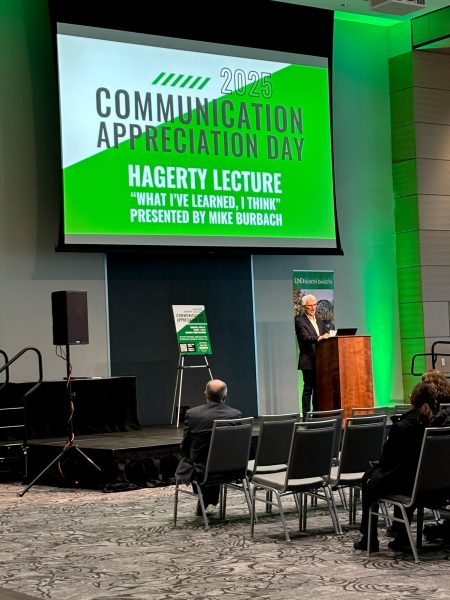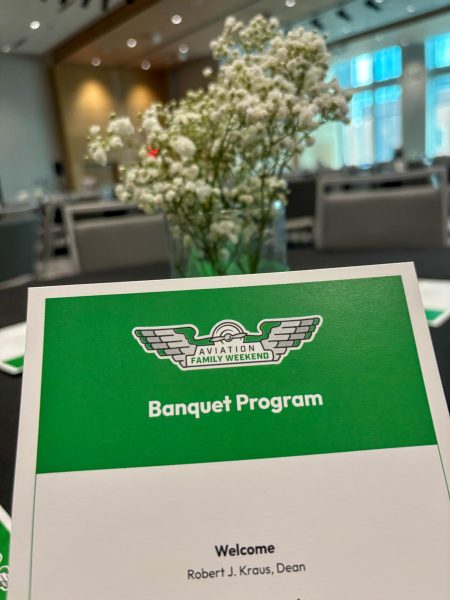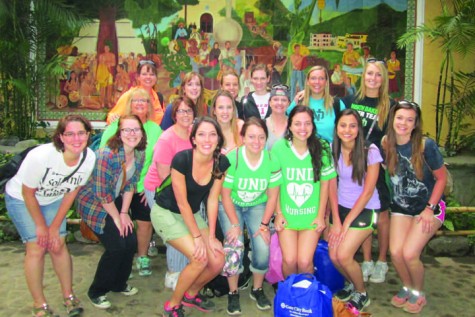Continuing education: Costs of grad school

Graduate student Travis Clark is a doctoral candidate in psychology. Photo by Serianna Henkel/The Dakota Student.
Continuing education through graduate school is seen by many as an opportunity to not only extend learning in a classroom setting, but to embark on extensive individual research.
With the time and work put into developing new ideas and research, the costs of graduate school are far more than monetary.
Cody Stanley is a Ph.D. student in history, with a cognate in women and gender studies. He is in the process of working on his dissertation, a continuation of his master’s work on the first female Supreme Court justice in North Dakota, Beryl Levine. The extended work will add research on Minnesota’s first female Supreme Court justice, Rosalie Wahl and will compare and contrast the two.
Such a project involves extensive research, which for Stanley will include conducting interviews and in-depth looks at the Supreme Court cases the respective justices were involved in.
The grad school experience on the Ph.D. level consists of coursework, comprehensive exams and a dissertation, which will ultimately round off at about two hundred pages. In several disciplines, candidates must also demonstrate proficiency in two foreign languages, or one foreign language and a specialized research skill.
Stanley is proficient in Spanish and utilizes oral history as his research skill — a skill that is going to be necessary for his dissertation.
Equally necessary is the funding behind the research.
“As a grad student, if you do it right, school shouldn’t cost you anything,” Stanley said. “The idea is that it’s a research university, so they want to sponsor research.”
By means of assistantships, tuition waivers and scholarships, funding may be accumulated by the school. It’s in part due to this funding that the university holds the right of ownership to any and all research completed while enrolled as a graduate student.
“I’m technically an employee of the university; I’m doing it on their dime,” Stanley said. “The argument is that okay, they’re funding it, they’ve paid for it, I do the footwork.”
However, a harsh truth is that in addition to university funding, he has had to find outside means of income to assist in the costs.
“The reality is, for the last 25 years, every state has drastically cut education,” Stanley said. “Assistantships (once) paid for way more than they do now; more needs to be done outside.”
Students have options to look at outside funding such as loans, as well as non-university grants and jobs.
“There you could make the argument that UND shouldn’t own it, or can’t claim full ownership, because an outside entity is (assisting in) paying for it,” Stanley said. “It’s an antiquated model. If you use their very own argument, it doesn’t hold as much water anymore.”
Stanley also makes note of variation in research funding based on discipline and the type of work that goes into it. In comparing humanities to hard sciences, the latter can be measured in lab research and like facilities that are provided by the university.
“In humanities, a lot more of the financial burden is going to be on the student,” Stanley said in reference to equipment and facilities in place for science research. “The university, due to the nature of the work, has to provide way more stuff for hard sciences. A historian, or a sociologist, you could go on and on … is sort of an island unto themselves.”
Travis Clark is currently a doctoral candidate in psychology. Like Stanley, he senses a heavy bias toward the hard sciences in terms of funding. As a social science, psychology requires different types of resources. However, subject matters have the potential to overlap between disciplines.
“It’s unfortunate that someone involved in neuroscience and someone in cognitive psychology might be studying almost the exact same thing,” Clark said “But the neuroscientist will probably get more funding due to their work experience.”
Clark notes that grants in certain fields, such as the hard sciences, are often better funded than others.
Clark’s research for his dissertation is working towards the goal of developing a new method of measuring sexism. Though such a tool already exists, Clark’s proposes to use a different, more indirect approach that will yield more accurate results.
So far, Clark says he has received an adequate level of financial support when needed, such as grants from UND to study, travel and talk to other researchers. What has proven more difficult to fund is a resource vital to such a project, as well as many psychology projects — the use of human subjects.
Clark has used undergraduate students in the past to further his research; however, that pool only represents a certain type of people.
In order to generate the most accurate results in his current project, an online survey of all types of people will prove to be better representative of the U.S. as a whole than the campus would be.
For this to happen, funding needs to be secured to pay online survey participants.
“The more funding I get, the more quality the data for my dissertation will be,” Clark said, who is currently working on self-generating the money by doing things for the university rather than solely seeking outside funding.
As far as ownership of his future findings goes, Clark labels this as a non-issue.
“Being able to freely share the data that I collect is more important to me than formal ownership over the manuscripts,” Clark said. “If the university were to ever try to secure my data so that other scientists couldn’t reanalyze it to try to prove me wrong, then I would get upset. So far, I don’t think that has happened at UND.”
Over all, Clark and Stanley both consider doing research through the graduate school to be a fair trade, Clark noting a difference between doing research for a private team versus the university system.
“It’s easier to publish things if you are affiliated with the university, because you are kind of beholden to the greater good,” Clark said. “I’m getting paid by the university in part to do research; I think of it as a trade-off.”
Serianna Henkel is a staff writer for The Dakota Student. She can be reached at serianna.henkel@my.und.edu.


